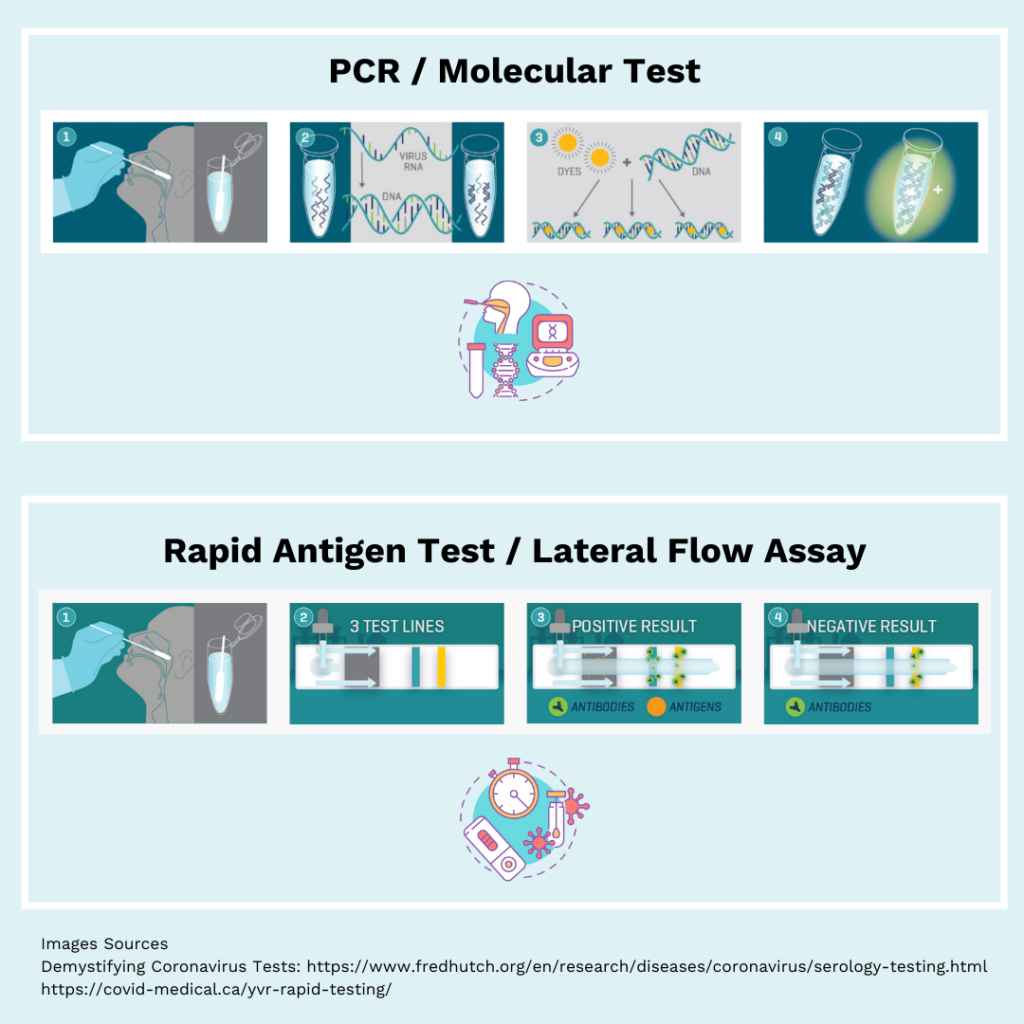A: Good news. Standard diagnostic PCR tests can pick up the Omicron variant. As far as we know, most rapid antigen tests can also detect Omicron, but tests are ongoing to determine if any specific brands are less sensitive to Omicron. Stay tuned!
WHICH VARIANT DO I HAVE?
🦠 Standard diagnostic tests can’t tell you which variant you have, they just tell you whether you have the SARS-CoV-2 virus. If you’re infected, they work regardless of whether you have Delta, Omicron, or some other known variant.
👩🏻🔬To determine which variant you have, your specimen needs additional analysis, like “sequencing” to read the genetic code of the virus causing your infection or specific molecular tests that distinguish among variants. This in depth analysis is used by scientists to understand the SARS-CoV-2 virus and to inform public health measures.
OMICRON x PCR
🧬A PCR test involves a DNA “barcode” that pairs with the viral genetic code, like a simple zipper. For novel variants, you can reliably predict the impact on PCR performance using “in silico” (computer) methods. All you need to do is make sure that your PCR barcodes still match the genetic sequence of the variant.
📣Indeed, the World Health Organization (WHO) quickly came out with a reassuring statement about PCR tests, as have many PCR test makers like Qiagen, Roche, and Thermo-Fisher.
🤓Nerd Note: PCR tests commonly target the N, E, RdRP, and ORF1ab genes. Most of Omicron’s mutations are in the gene that codes for the spike (S) protein.
OMICRON x ANTIGEN TESTS
🔐 Rapid antigen tests (aka lateral flow assays) involve delicate 3D interactions between antibodies and proteins. Think lock and key, or Cinderella’s slipper – it has to fit just right! For novel variants, “in silico” (computer) predictions give a solid start, but you need lab experiments to rule out any subtle changes that alter the interaction between the viral protein and the antibody, especially if there are mutations near the test target.
📣Not surprisingly, rapid test makers have been more slow and cautious in their public statements. So far, we’ve heard only good news, including from Abbott (BinaxNOW), Quidel (QuickVue), BD (Veritor), and BTNX (Rapid Response). All have noted ongoing experimental validation.
🤓Nerd Note: Rapid antigen tests commonly target the N (nucleocapsid) protein. The Omicron variant has a few N gene mutations, but this is not a deal breaker. As long as the mutations don’t alter the precise piece detected by a rapid test, we’re in good shape. This is where lab validation comes in.

Thanks to Chana Davis, PhD from @fueledbyscience for this post.
DP Links:
Should I take a COVID-19 rapid antigen test?
I’ve been exposed to COVID-19! When should I get tested?
Why are there so many tests for COVID-19? How do I know which one is best for me?
References:
FDA: SARS-CoV-2 Viral Mutations: Impact on COVID-19 Tests
Abbott, BD join chorus of COVID-19 test makers claiming diagnostics not impacted by omicron variant
Diagnostic techniques for COVID-19 and new developments


